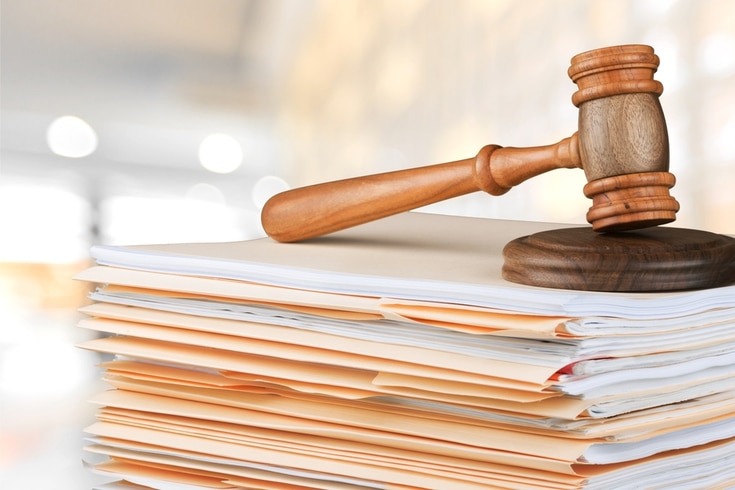How to Identify the Poster When a Negative Review is Written on Lighthouse (Formerly Known as 'Company Reputation')

Lighthouse (formerly known as ‘Kaisha no Hyouban’), which underwent a site renewal on June 1, 2020 (Gregorian calendar), is a company review platform operated by En-Japan Inc. It allows you to view company evaluations based on reviews by current and former employees.
Here, we will explain how to identify the poster if a negative review is written on Lighthouse (formerly known as ‘Kaisha no Hyouban’).
https://monolith.law/reputation/deletion-of-black-company-reputation-posts[ja]
What is Lighthouse (formerly known as Kaisha no Hyouban)?
Most job seekers nowadays check the reputation of their desired companies on job and career change review sites before applying.
The most well-known job and career change review sites are:
- Lighthouse (formerly known as Kaisha no Hyouban)
- Job Change Conference
- OpenWork (formerly known as Vokers)
Among these, Lighthouse (formerly known as Kaisha no Hyouban) boasts the largest number of reviews.
In fact, when a company name is searched on Google, the Lighthouse (formerly known as Kaisha no Hyouban) page for that company often appears on the first page of search results. If job seekers come across malicious reviews there, they may refrain from applying. This could potentially have a negative impact on the company, particularly in terms of recruitment.
Examples of Defamation on Lighthouse (formerly known as ‘Company Reputation’)

While general complaints are not much of a concern, there are many instances where exaggerated negative reviews or malicious false reviews are written, such as “long overtime hours, some of which are unpaid,” “unable to take paid leave,” or “forced to work on holidays.” It is necessary to request the removal of such reviews as soon as possible to prevent further damage.
However, this does not mean the problem is resolved. Even if the offending review is removed, there is a possibility that the same person may post malicious comments again, or post similar comments on other platforms. To completely resolve the issue and prevent such situations, it is necessary to identify the poster and pursue legal action to hold them accountable.
Request for Disclosure of Sender Information
In order to take legal action and hold accountable those who post malicious or false reviews, it is necessary to know the name and address of the person in question. However, not only on Lighthouse (formerly known as “Company Reputation”), but also on the internet, most posts and defamatory comments are made anonymously or “effectively anonymously”. Therefore, in order to know the name and address of the poster, it is necessary to request the disclosure of information such as the name and address of the person who wrote the post from the provider, such as the administrator (operating company) of the bulletin board or blog site. This is what is known as a request for disclosure of sender information.
A request for disclosure of sender information is a request for information disclosure based on Article 4 of the Provider Liability Limitation Act (official name “Law Concerning the Limitation of Liability for Damages of Specific Telecommunications Service Providers and the Disclosure of Sender Information”, enacted on May 27, 2002 (Heisei 14)). This is a system that requests the provider, who holds the information, to disclose information (address, name, registered telephone number, etc.) about the sender, i.e., the perpetrator, who has made expressions such as defamation on the net.
What is a Provider?
A request for disclosure of sender information is a request for information disclosure to a provider based on the Provider Liability Limitation Act, but first, let’s confirm what a provider is.
Two Types of Providers
First of all, anyone who uses the Internet needs to contract with a line operator that provides Internet lines.
In addition to the line, a contract with a transit provider (Internet Service Provider) is also necessary for Internet connection. A transit provider is a business operator that connects to the Internet through a line, and a contract with a transit provider is necessary to connect the line to the Internet. This is the same not only for fixed-line services but also for mobile phones and smartphones.
An electronic bulletin board is one of the typical functions available on a website, and the administrator of the electronic bulletin board is referred to as a Content Service Provider.
Thus, there are two types of providers: Content Service Providers and Transit Providers.
Procedure for Identifying the Poster ①: Request for IP Address Disclosure
Firstly, to identify the poster, we make a request for disclosure of sender information to En-Japan Inc., the operating company of Lighthouse (formerly known as “Kaisha no Hyouban”).
IP Address and Timestamp
How much does the operating company of Lighthouse (formerly “Kaisha no Hyouban”) know about the poster’s information? Registration for Lighthouse (formerly “Kaisha no Hyouban”) requires an email address, but it can be a free email address. This does not mean that the sender’s email address can be identified, and of course, the sender’s name and address cannot be identified. However, even on completely anonymous bulletin boards where even a free email address is not required, there is information that the operator definitely knows. That is the poster’s “IP address and timestamp”.
An “IP address” is an address information on the Internet. Every machine connected to the Internet, such as a home PC or smartphone, has a unique IP address. When a site is accessed or a post is made, the poster’s IP address and the time of access, the “timestamp”, are recorded by the content service provider. Normal administrators record IP addresses and timestamps, so you can ask them to “disclose the IP address and timestamp of the person who made the illegal post”.
Disclosure Request by Provisional Disposition Procedure
When a request for disclosure of sender information is made, the site administrator, who is the content service provider, determines whether the request meets the legal requirements and decides whether to disclose or not. Although there may be cases where they voluntarily respond to the disclosure request, it is usually the case that they cannot respond to the disclosure request unless a public judgment is made by the court. Therefore, you will need to file a provisional disposition for disclosure of sender information against Lighthouse (formerly “Kaisha no Hyouban”). From the provider’s perspective, the person who posted is a customer, and from the perspective of personal information protection, there are hardly any cases where they respond to arbitrary information disclosure requests.
Therefore, it will be realized using court procedures, but in this case, it is not a formal lawsuit but a provisional disposition, which is a quick procedure. Trials take time, but provisional dispositions can be implemented in about 1-2 months.
If the disclosure of information is approved by the provisional disposition, Lighthouse (formerly “Kaisha no Hyouban”) will promptly disclose the IP address and timestamp.
Conditions for Requesting Disclosure of Sender Information

People who have had their rights infringed on the Internet can request the disclosure of sender information from two types of providers based on the Provider Liability Law, but Article 4 of the Provider Liability Limitation Law states that “rights have been infringed” and “there is a legitimate reason”, you can request the disclosure of sender information.
What does it mean to have rights infringed?
Even if the posts and slander are malicious and persistent, if they are not illegal, they cannot be said to have “infringed rights”. This is generally referred to as the “obviousness of rights infringement”, and whether this requirement is met or not is the issue.
In the case of malicious posts and slander on Lighthouse (formerly “Kaisha no Hyouban”), it is highly likely that defamation or credit defamation can be questioned for those that exceed the limit.
In the case of defamation or credit defamation, the point is whether there is an objective fact that the victim’s personality, reputation, credit, etc. have been lowered in social evaluation due to the problem posts, etc.
In addition, it is necessary that there are no circumstances that suggest the existence of illegality blocking reasons (publicity, public interest, truthfulness). Even for speech on the Internet, freedom of expression (Article 21 of the Constitution) is guaranteed, so even if the expression in question lowers the social evaluation of a specific person,
- It indicates a fact that is related to the specific interests of the public (publicity)
- The purpose is solely to serve the public interest (public interest)
- The fact indicated is true (truthfulness) or there is a reasonable reason to believe it is true (truthfulness)
Defamation is not established in these cases.
https://monolith.law/reputation/defamation[ja]
What does it mean to have a legitimate reason?
A request for disclosure of sender information requires a rational necessity to obtain the information. You cannot request disclosure for a vague purpose.
In the case of the poster on Lighthouse (formerly “Kaisha no Hyouban”),
- It is necessary to request deletion from the sender
- It is necessary to exercise the right to claim damages in civil law
- It is necessary to identify the person when taking legal measures such as criminal accusation
Only in such cases can it be recognized that there is a “legitimate reason”.
Procedure for Identifying the Poster ②: Prohibition of Log Deletion
Once the poster’s IP address is disclosed in Step 1, the transit provider used by the sender is identified either by the URL or by using a provider identification service such as “WHOIS”.
Next, you will request log information from the transit provider, asking them to disclose the name and address of the person who was connected at this IP address at this time. However, the amount of this log information is enormous, with tens of millions of people for mobile carriers and millions of people for transit providers. Therefore, transit providers delete logs after a certain period of time, with mobile carriers doing so after about three months and fixed-line providers after about a year at most. As a result, if too much time passes between the post and the filing of a lawsuit, there is a risk that the logs will be deleted.
On the other hand, when requesting the disclosure of the sender’s name and other information from the provider, it is necessary to request significant personal information, so it is generally necessary to do so through a regular civil lawsuit. However, since it often takes several months for the procedures of a regular civil lawsuit to be completed, it is necessary to take provisional measures to prohibit the deletion of logs, i.e., to prevent the evidence from being lost, during this period.
However, if the provider is notified that “we are requesting the disclosure of the address and name through the court, so please keep the logs for a while”, they often keep the logs, so in many cases, this part can be covered by notification alone.
Procedure for Identifying the Poster ③: Lawsuit for Disclosure of Sender Information
Once the preservation of the access log is guaranteed, a lawsuit for the disclosure of sender information is filed against the intermediary provider, seeking the disclosure of information about the sender such as ‘address, name, email address’, etc.
As a general rule, intermediary providers do not comply with the disclosure of sender information unless the sender consents. Furthermore, the address and name are significant personal information. Therefore, the court will only allow the disclosure of the address and name through a formal procedure of a lawsuit if it recognizes the illegality. The main point of contention in the lawsuit is whether the content of the target post clearly infringes on the rights of the plaintiff (the person requesting disclosure).
https://monolith.law/reputation/provider-liability-limitation-law[ja]
Procedure for Identifying the Poster ④: Claim for Damages
If the court determines that “rights have been infringed by the posted article” and that “there is a legitimate reason,” the court will order the intermediary provider to disclose the name, address, email address, etc. of the subscriber used when posting the article.
Once the sender’s information is disclosed and the sender is identified, several options become available.
- Make them pledge not to repeat defamation in the future
- Make a claim for damages
- Claim necessary expenses (investigation costs, attorney fees)
- File a criminal complaint
There are options other than claiming damages, and it is possible to choose multiple options. However, in the case of Lighthouse (formerly known as “Company Reputation”), unlike review sites such as Tabelog and Jalan.net, most of the identified posters are current or former employees, so careful and difficult decisions are necessary.
https://monolith.law/reputation/provider-liability-limitation-law[ja]
Summary
Simply removing posts that defame or slander often does not fully compensate the victim, and many times, the problem is not resolved. It is important to identify the poster and hold them accountable to prevent the recurrence of such incidents.
In the case of Lighthouse (formerly known as ‘Company Reputation’), difficult decisions may need to be made after the facts have been established. Please consult with a lawyer who has extensive experience handling such cases.
Category: Internet





















